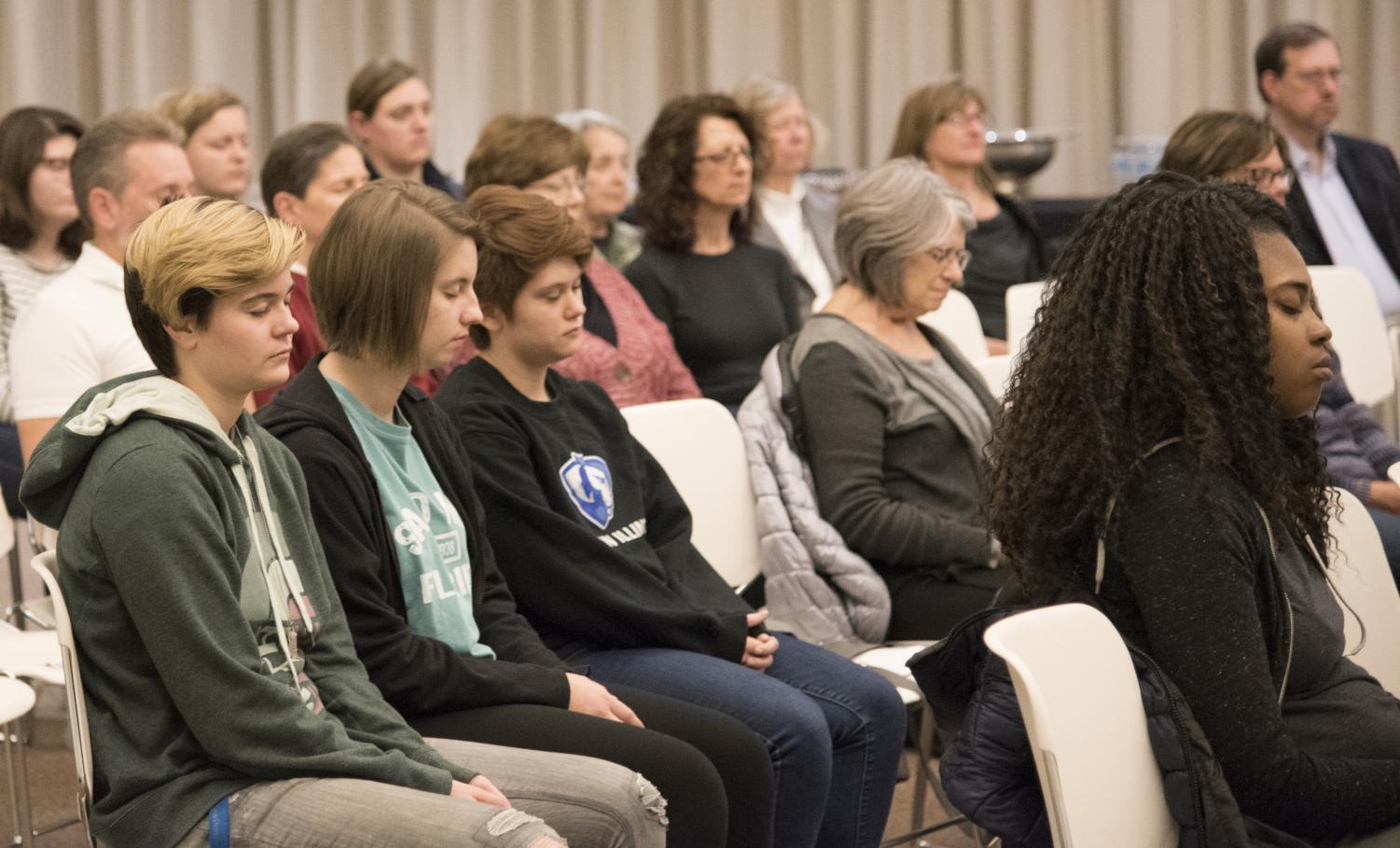Students learn about each other, themselves at interactive speech
Marne Austin, a communication studies professor from Saint Mary’s College, Notre Dame, Ind., speaks at the “Camille Compo Memorial Women’s Studies Endowed Speaker Series” Wednesday night at The Tarble Arts Center.
November 29, 2017
An interactive speech allowed audience members to calm down and learn something new from Marne Austin, a communication studies professor from Saint Mary’s College, Notre Dame, Ind.
This was the second speech of the Camille Compo Memorial Women’s Studies Endowed Speaker Series, named after the founding member of Eastern’s women’s studies program, now called women’s, gender and sexuality studies.
Austin started her speech, “Buoys Instead of Anchors: Connecting with Each Other Through Language to Go Beyond,” with a meditation session, telling audience members she wanted them to reflect and connect with each other and the world.
Senior psychology major Chelsey Stinnett said the activity reminded her of when she used to do yoga and meditate.

Marne Austin, a communication studies professor from Saint Mary’s College, had audience members meditate during her speech.
“I’ve been very stressed out,” Stinnett said. “Having that moment to breathe and meditate helped me focus on the broader topics of what the speech was about.”
Austin said making the speech interactive is what made it the most authentic to her.
“We talk a lot about things in college but we don’t often practice them,” Austin said.
The second interaction allowed audience members to gaze into each other eyes, to get them to learn about themselves and their partner.
“It becomes this whole kind of thing where people are more comfortable with each other,” Austin said.
English professor Jeannie Ludlow, coordinator of women’s, gender and sexuality studies, said every time there is an interaction between people they have the opportunity to learn something.
“(Austin) was teaching us and bringing information down to us, but she was creating a space where we were creating it together,” Ludlow said.
Although an introvert, Austin said her nervousness motivated the message and the interaction among the crowd.
“Nervousness was a sign to lean into it and to do it. All we can ever be is authentic to who we are in the moment,” Austin said. “So, it was a very intentional practice of going and to let go of that nervousness to see what happens and trust that it will happen as it’s meant to.”
Audience members were able to grasp their own messages through the speech.
Stinnett said she learned not cling too tightly to her own ideas and to be open to experiencing other people’s ideas and experiences.
Meanwhile, Nathan Barnett-Bishop, a junior pre-engineering major, said he learned not to be afraid of acknowledging fear or not knowing things.
“I thought it would be just an ordinary presentation panel, but she made it interactive and fun,” Barnett-Bishop said.
Austin said with her speech, she hoped to dismantle the idea that when people go into things, there is one main intention or point.
“Rather than that, what does it mean that there are infinite points that means that everyone can find something to connect with?” Austin asked.
Jakira Smith can be reached at 581-2812 or [email protected]



















































